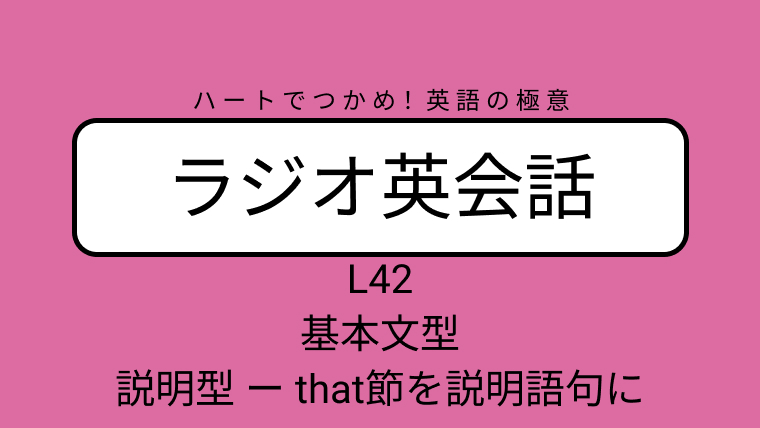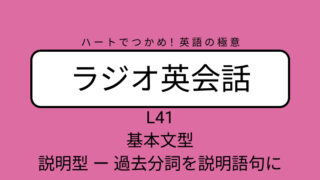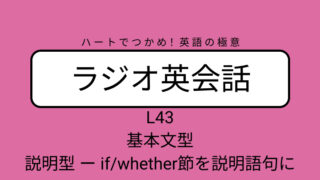NHKラジオ英会話のディクテーション「基本文型・・・説明型 ー that節を説明語句に」L42 2024/6/4

ディクテーション
講師陣の英会話を書きとり(スクリプト)
大西先生、デイビッドさん、ろーざさんの英会話部分を書きとってみましょう!(大西先生のギャグもできるだけ書きとります。)
Opening
Ohnishi: ラジオ英会話、ハートでつかめ英語の極意、講師の大西泰斗です。
さぁ今日も基本文型、急がずゆっくりと、徹底的に練習しましょう。
Roza: 先生、声どうしたの?
Ohnishi: ビルバンガローです。
Roza: Hey everyone. This is Akino Roza.
David: And I'm David Evans.
Ohnishi: さ、それでは今日も、さっそく始めていきましょう。
Practice 9:25
David: OK everyone, it's time for today's practice. Here are some set phrases that we usually use in combination with that clauses. All right, let's master the rhythm and the feel.
Roza: Let's begin. The thing is ... the thing is ...
- This thing is that ~.
David: Good work. Let's keep going. The issue is ... the issue is ...
- The issue is that ~.
Roza: One more. The trouble is ... the trouble is ...
- The trouble is that ~.
David: Unlock your potential.
Roza: Repetition is the key.
Both: Great work.
Grammar in Action
気が向いたときに・・・これはディクテーションじゃなくて、自分の答えです。金曜日と違って文が短いので、だいたい時間内に書けます。^^
The problem is that we don't have enough information.
オッケー
The thing is that dead line is tomorrow. Can you finish this by this?
the deadline ねー
The issue is that I don't know him. Can I believe him?
まぁまぁかなー
Ending
Ohnishi: Hey guys, "The problem is ~" and "The issue is ~", they share the same translation sometimes, right? What's the difference?
David: Ah good question. See, issues and problems can both be big or small, but problems feel more serious, issues require discussion, and problems require solving.
Roza: Also, if you use the word problem, it does have a more negative feeling, so you can say the same kind of feeling, but if you don't want to say anything negative, you can use the word issue.
Ohnishi: なるほどね、problem の方が、より negative な感じがする表現だというわけですね。さ、それでは今日はこの辺で。
All: Bye.
~ ディクテーションした内容やその解釈などに、聞き間違いや認識違いがある可能性はあります。ご了承ください


